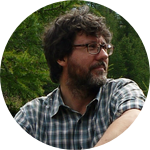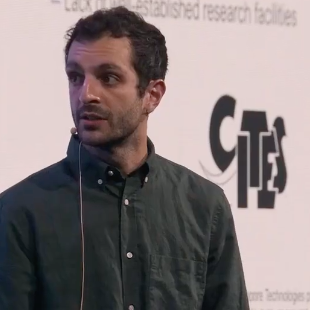About This Project
The current rate of biodiversity loss calls for immediate actions. The recent commercialisation of portable scientific instruments enables DNA metabarcoding analysis in field-laboratory conditions. We have been developing a harmonised laboratory system for arthropod species identification to assess how environmental change is impacting biodiversity on the remote islands of the Aeolian Archipelago (Italy), which could be scaled up for similar studies.
Ask the Scientists
Join The DiscussionWhat is the context of this research?
Understanding how global change is shaping species distribution and interactions is central to ecological research and biodiversity conservation. Fortunately, technlogical improvements can now help us generate vast amounts of data to try address this question in a rapid and effective manner.
The recent introduction of portable nanopore sequencing technology enables DNA metabarcoding analysis for species identification directly on site, overcoming the limitations that have long hampered the full potential of molecular analysis for biodiversity conservation. However the lack of harmonised and standardised approaches represents a major obstacle to its applicability at scale.
What is the significance of this project?
The aim of this project is to adapt portable sequencing for the realisation of an integrative, harmonised, and cost-effective approach to species identification virtually anywhere and by anyone. If successful, it will allow to monitor biodiversity and unveil key interspecific interactions at a fraction of the costs across the globe.
A standardised approach would allow researchers to assess how biodiversity is responding to increasing environmental change, while also producing results that are commensurable across study areas and providing crucial evidence for the implementation of sound conservation policies. Finally, the system portability could be scaled to capacitate scientists in remote areas with important benefits for biodiversity conservation worldwide.
What are the goals of the project?
Our overarching goal is to develop a standardised portable laboratory system for DNA metabarcoding analysis to rapidly assess how biodiversity is responding to global change even in remote areas. To this end, we are using portable laboratory instruments and optimising protocols for in situ DNA sequencing.
We aim to take the system to the remote Aeolian archipelago (Mediterranean sea) where we collect arthropods, which we will use as biodiversity indicators across islands. We will then process our samples to extract, amplify, and sequence DNA for in situ species identification. The system will also be used to study other important aspects of the archipelago ecology, such as the diet of the critically endangered predators via DNA testing of faecal samples.
Budget
I have already secured a small pot of money that allowed me to purchase the Bento Lab Pro ($2000), the ONT Flongle StarterPack and the ONT Ligation Sequencing Kit ($2600). This has allowed me to conduct simple trials both in the molecular lab at UoF and on the island of Stromboli (Italy). I am now able to finally test the system in the field.
Securing this additional budget will allow me to conduct extensive fieldwork in the Aeolian Archipelago and test the system in a variety of situations. The money I am requesting will be used to:
1) Purchase additional ONT kits and companion reagents ($700+$8000=$1500) to analyse a larger number of samples across islands and through different ecological gradients.
2) Spend time (in June - August) in the archipelago to study how arthropod diversity is responding to a variety of pressures, while also studying the diet of P. raffonei a Critically Endangered endemic lizard. Estimated cost = $2000
Endorsed by
 Project Timeline
Project Timeline
This is an ongoing project, that started in October 2022 and ends in October 2023 with possibility of extension.
The funds raised from this crowdfunding projects will be used to cover expedition costs from June to August 2023, including equipment acquisition. We are planning at least 3 trips to the Aeolian archipelago of 10 days each.
Updates will be shared on social media and lab notes.
The project will contribute to at least one publication and two conferences.
Oct 01, 2022
Project started
Dec 16, 2022
DNA extraction protocol optimization
Apr 08, 2023
Equipment acquisition
Apr 11, 2023
First trial test in the molecular lab at UoF
Apr 18, 2023
First pilot expedition to Ginostra (Island of Stromboli)
Meet the Team
Affiliates
Team Bio
I am collaborating with EndemixIT, an inclusive and diverse team of geneticists, bioinformaticians and nature lovers. I am also working with the Natural History Museum of Ferrara, a small but precious treasure trove of natural records and information in a fast changing world.
Ettore Fedele
I have loved nature since I was a kid growing in the Venetian countryside. On warm sunny days I would spend my time out in nature, playing and hiking with family and friends. On cold rainy days I would spend hours watching video cassettes of Jacques Cousteau's quests, David Attenborough's incredible adventures and my all favorite Gorillas in the mist. As a kid I was lucky enough to follow my parents on their travels around the world, from the vibrant coral reefs of the Red Sea, to the majestic Sequoia trees in California, all the way to the breathtaking sceneries of the African savannah.
I am now living my childhood dream of studying nature. I am a research fellow at University of Ferrara (Italy) and I have an interdisciplinary background in Economics, Ecology and Genetics. In the past, I researched how African elephants can shape the biodiversity in semi-arid savannah; how invasive species can interact and modify the environment they colonise, and how technological improvements can help us save the last remaining gorilla populations in the wild.
I hold a MSc in Conservation & Management of Protected Areas from Edinburgh Napier University (with Distinction) and a NERC-funded PhD in Population Genomics from the University of Leicester. I have collaborated with international NGOs and landowners in Sub-Saharan Africa, and world-class research institutions including the Royal Botanic Gardens - Kew and the European Commission Joint Research Centre. I have published on a variety of topics and presented at scientific conferences.
Additional Information
I have already conducted a trial test on Ginostra, the most remote island of the Aeolian Archipelago. Results are promising and lab notes will be shared soon, however, we believe that additional time would allow us to test the system in different situations and improve aspects of the protocol that would make it accessible to anyone.
Project Backers
- 6Backers
- 100%Funded
- $3,512Total Donations
- $585.33Average Donation

